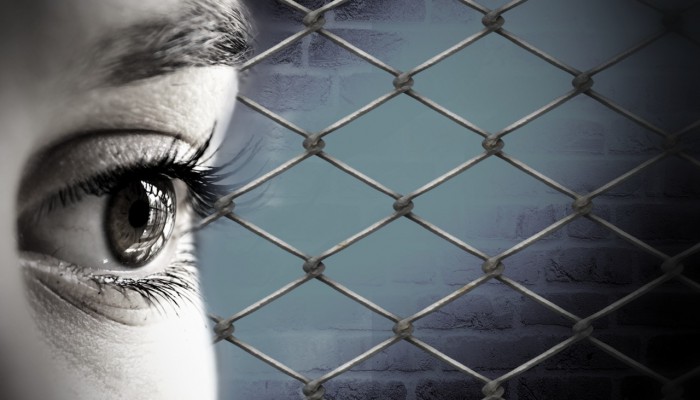The impact of detention on the social–emotional wellbeing of children seeking asylum
There is a remarkable convergence in the findings of published studies in identifying a consistent profile of risk factors for poor health and wellbeing outcomes for refugee children. Reducing the time held in immigration detention centres may be one of the risk factors most amenable to public health interventions, particularly in reception countries of the west.
The current system in Australia is that 13,000–20,000 refugees each year are resettled in the community after the processing of their protection claims by the United Nations overseas. However, asylum seekers who have not had their claims processed on arrival in Australia and who arrive by boat are routinely subject to mandatory detention, off-shore processing in remote islands and denial of permanent protection, family reunification or resettlement in Australia.This is an issue of global concern since the detention of children is not confined to Australia, with the practice being applied in more than 60 countries worldwide across the spectrum of high and low income nations.
Studies have compared wellbeing between asylum seekers who have been detained and non-detained refugees, but these have occurred only in adults. Robjant compared levels of psychological distress in asylum seekers in the community with the same indices in detained asylum seekers and non-refugee criminal detainees (2009). The researchers found that asylum seekers in detention had the highest scores of all three groups on depression, anxiety and PTSD symptoms. Ichikawa (2006) also found that ex-detained adult asylum seekers had higher levels of emotional disturbance once released than their refugee counterparts who had never been detained. Cohen (2008) found suicide and self-harm rates in asylum seekers in UK detention centres to be higher than those amongst refugees in the community and comparable to the prevalence amongst general prison populations. To date, there are no published studies comparing asylum seeker children in detention with children in the community in relation to indices of mental health and wellbeing.
Australian and international policies increasingly subject displaced children to immigration detention. There are many restrictions to independent research and analysis of the health and human rights impacts of these policies. In this context and notwithstanding the acknowledged limitations, our study compared the wellbeing of refugee and asylum seeker children living in detention and those living in the Australian community since arrival. The aim of our study was to examine whether, as hypothesised, refugee children in detention showed poorer levels of social–emotional wellbeing than their counterparts living in the community. The samples included a community-based population of 38 refugee children who arrived by plane, were not detained, were allowed to reside in a non-urban area and followed for 2–3 years after arrival; and the index group of 48 children who arrived by boat seeking asylum, were immediately detained and held in detention for the duration of their residency in Australia (Mares, 2016).
The parent version of the strength and difficulties questionnaire (SDQ) of children aged 4–15 years was compared in the 38 children living in the community with the 48 children held in detention. The mean age was similar for the community and detention sample at 8.4 years (P = 0.18). In the total sample, children in the detention group had significantly higher SDQ total difficulties scores (or more social-emotional problems) than children in the community group (P < 0.0001). All age groups were affected. The children in the detention group had, on average, an SDQ total difficulties score that was significantly higher than children in the community group. Four of the five SDQ subscale scores indicated greater disturbance amongst children in detention (P < 0.0001) compared to children living in the community.
Our study presents a rare opportunity to compare the wellbeing of asylum seeker children who were detained following arrival in Australia with those settled in the Australian community since arrival. Children in detention had markedly worse social-emotional wellbeing at all ages than their community based counterparts. The community children’s scores were similar to the general Australian childhood population. Children held in detention had significantly more social, emotional and behavioural difficulties than children living in the community and were similar to children requiring mental health services. Despite the small sample size, data restrictions and other limitations of the data, statistical significance in differences between the community and detention children is marked and arguably demonstrates the negative impact of post-arrival detention in children who are presumed to have similar levels of pre-arrival adversity.
Consistent with known scientific literature, these results present a compelling argument that detention itself contributes to the very high level of social-emotional distress experienced by children seeking asylum who are detained. They are suggestive of a high level of social-emotional damage associated with the detention environment, which may have specific psychopathological impacts. If the objective is to optimise the health and wellbeing of children seeking asylum, removal of post-arrival detention is one of the most powerful interventions available to host countries.
This post is an extract from this recently published journal article by Karen Zwi, Sarah Mares, Dania Nathanson, Alvin Kuowei Tay, and Derrick Silove.
References
- Cohen J (2008) Safe in our hands?: a study of suicide and selfharm in asylum seekers. J Forensic Leg Med 15(4):235–244.
- Mares S. (2016 B) The Mental Health of Children and Parents Detained on Christmas Island: Secondary Analysis of an Australian Human Rights Commission Data Set. Health Hum Rights 18(2):219-232.
- Robjant K, Robbins I, Senior V (2009) Psychological distress amongst immigration detainees: a cross-sectional questionnaire study. Br J Clin Psychol 48:275–286 22.
- Steel Z, Silove D (2004) Science and the common good: indefinite, non-reviewable mandatory detention of asylum seekers and the research imperative. Monash Bioeth Rev 23(4):93–103 23.
1 Response
Leave a Reply
You must be logged in to post a comment.

Pingback : Impact of Detention on the Social–Emotional Wellbeing of Children Seeking Asylum | Rural Australians for Refugees